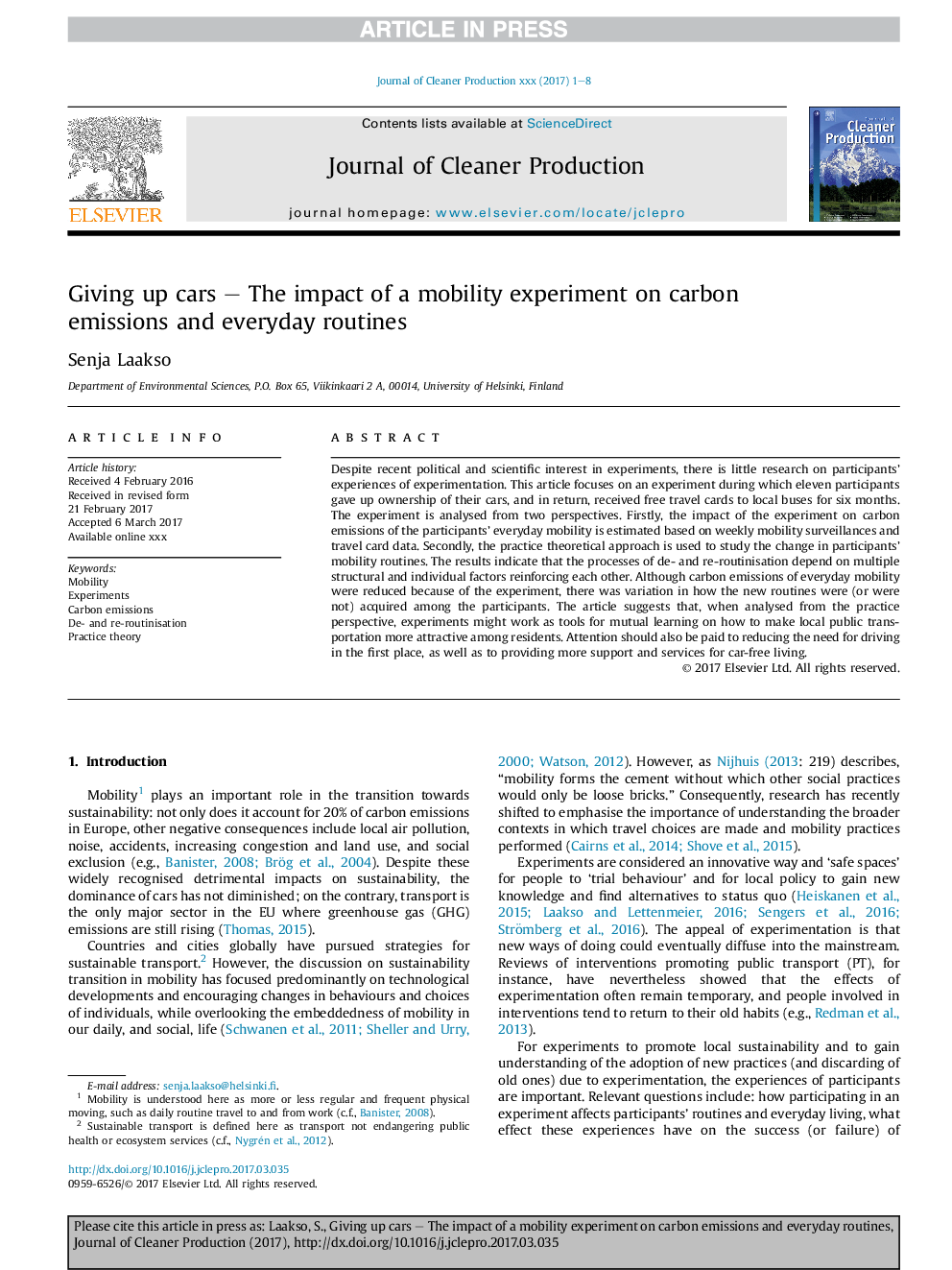| Article ID | Journal | Published Year | Pages | File Type |
|---|---|---|---|---|
| 5479307 | Journal of Cleaner Production | 2017 | 8 Pages |
Abstract
Despite recent political and scientific interest in experiments, there is little research on participants' experiences of experimentation. This article focuses on an experiment during which eleven participants gave up ownership of their cars, and in return, received free travel cards to local buses for six months. The experiment is analysed from two perspectives. Firstly, the impact of the experiment on carbon emissions of the participants' everyday mobility is estimated based on weekly mobility surveillances and travel card data. Secondly, the practice theoretical approach is used to study the change in participants' mobility routines. The results indicate that the processes of de- and re-routinisation depend on multiple structural and individual factors reinforcing each other. Although carbon emissions of everyday mobility were reduced because of the experiment, there was variation in how the new routines were (or were not) acquired among the participants. The article suggests that, when analysed from the practice perspective, experiments might work as tools for mutual learning on how to make local public transportation more attractive among residents. Attention should also be paid to reducing the need for driving in the first place, as well as to providing more support and services for car-free living.
Related Topics
Physical Sciences and Engineering
Energy
Renewable Energy, Sustainability and the Environment
Authors
Senja Laakso,
